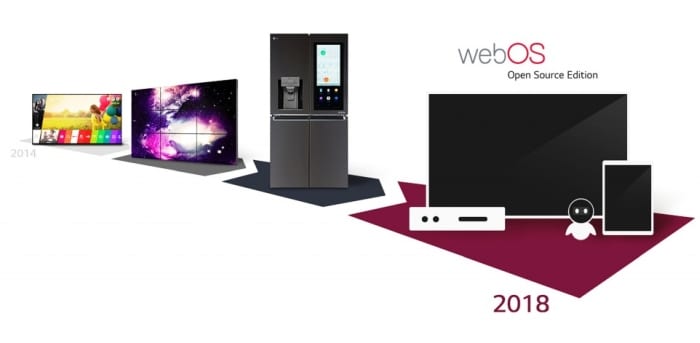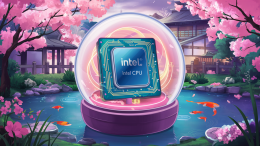WebOS, initially developed by Palm Inc, was used to power HP’s now-dead Palm devices and tablets. HP eventually sold the OS to LG Electronics and since then, the South Korean company’s been using it on its smart TVs and refrigerators. However, LG now plans to expand its use beyond that, and the company’s approach in doing so is making the webOS public. Yes, LG has released a webOS Open Source Edition version of the operating system.
This is not the first time an open-source version of webOS has been released. Before selling the OS to LG, HP itself tried making it open-source, but failed. Now LG has taken a similar route, with the hope that developers will adopt it for devices like tablets, set-top boxes and robots (Yup! Look at its illustration below).

“When LG adopted webOS for our popular smart TV lineup in 2013, it did so with the knowledge that webOS had tremendous potential. WebOS has come a long way since then and is now a mature and stable platform ready to move beyond TVs,” said Dr. I.P. Park, Chief Technology Officer at LG.
To be true, LG has refined the platform significantly since the acquisition. And now, the company seems confident enough to expand it beyond in-house products.
WebOS Open Source Edition
WebOS Open Source Edition comes with an SDK available as well as instructions for building the operating system (links below). It can also be installed on a Raspberry Pi 3 computer. The OS includes a home launcher, support or notifications, and system apps including a Settings app and a version of Google’s open source Chromium web browser. As the name suggests, the webOS is designed to run apps built using web technologies including HTML5, JavaScript, and CSS.
LG’s answer to Samsung’s Tizen
LG’s cross-town rival Samsung develops and uses the open-sourced Tizen OS on a variety of its devices. The device category list includes smartwatches, televisions, refrigerators, blu-ray players, robotic vacuums, and even smartphones. LG has definitely taken a note of it and desires to do the same. And it’s quite natural and logical. Control the hardware and software platforms, and you have a much better chance of standing out against your competitors. But then, the company first needs find developers brave enough to bite on a little-used OS, of course.
LG, however, is confident and says developers needn’t fear webOS, as it’s a familiar “Linux-kernel-based multitasking OS with support for HTML5 and CSS3.” LG is working with the National IT Industry Promotion Agency (NIPA) to find suitable webOS business proposals, and will provide logistical and technical support to any viable candidates with commercialization as the end goal. This will provide a competitive advantage for the developers choosing webOS rather than Android, which does supports a massive array of third-party apps, many of which are not yet available for webOS, or even Tizen.





















